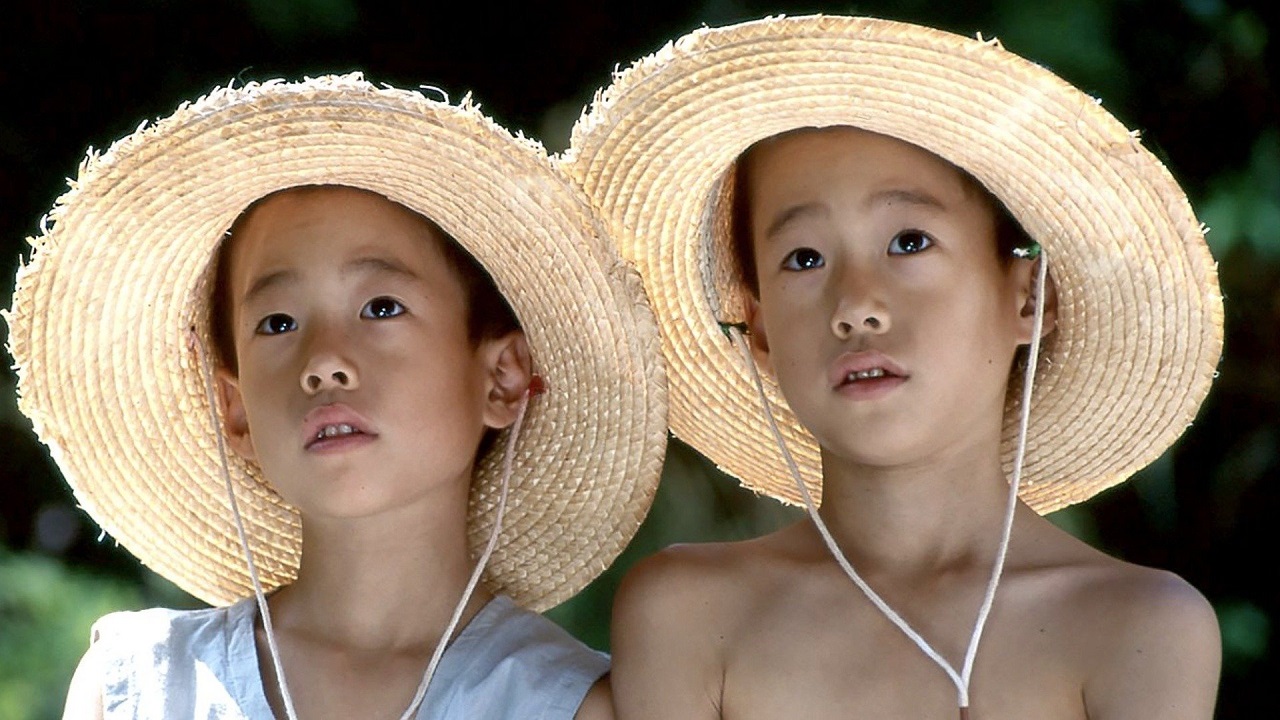(E no Naka no Boku no Mura)
Crew
Director – Yoichi Higashi, Screenplay – Yoshio Higashi & Takehiro Nakajima, Producers – Koshiro Sho & Tetsujiro Yamagami, Photography – Yoshio Shimizu, Art Direction – Akira Yaito. Production Company – Siglo.
Cast
Keigo Matsuyama (Seizo Tashima), Shogo Matsuyama (Yukihiko Tashima), Mieko Harada (Mizue Tashima), Komatsu Hosei (Jimma), Kyozo Nagatsuka (Kenzo Tashima), Keda Kochi (Principal)
Plot
In the present-day, two twin brothers, Seizo and Yukihiko Tashima, are successful artists. While visiting one another, they remember back to growing up in the Kochi province in 1948. Together the two of them spent their time fishing and causing mischief. The two befriended a new boy at school who was ostracised by others.
This is one of these films about the day-to-day mundanity of the lives of peasants in rice paddies of which I cannot consider myself much of an enthusiast. Perhaps I do Village of Dreams a disservice. The film received a degree of acclaim when it received an international arthouse release in 1997; personally I found it a long, dull effort.
Village of Dreams is intended as a series of childhood anecdotes – the film is based on the childhood reminiscences of two real-life twin storybook artists Seizo and Yukihiko Tashima who both play themselves during the present-day wraparound segments. However, these anecdotes are lazily constructed and the film without any real dramatic structure. It only drifts through incidents. One or two of these are amusing – like the scene where one of the twins is sentenced to detention after school and gets out of it by telling the principal he is the other, whereupon the other twin does as well.

However, most of what happens is either slight or the director’s approach whimsical – like having the thoughts of a fish subtitled as they try to catch it. The lack of dramatic construction is annoying – one of the big points we are supposed to be affected by is how it was wrong that Senji, the boy the twins befriend, is turned away by their mother – but we never learn why Senji was turned away or why he subsequently left school. The two young actors cast the twins are play naturalistically together but the film goes on forever.
I include Village of Dreams here for its occasional Magical Realist elements, including a troika of MacBeth-like Japanese witches who sit by commenting on the two boys and deciding whether or not to punish them for their mischief-making.


